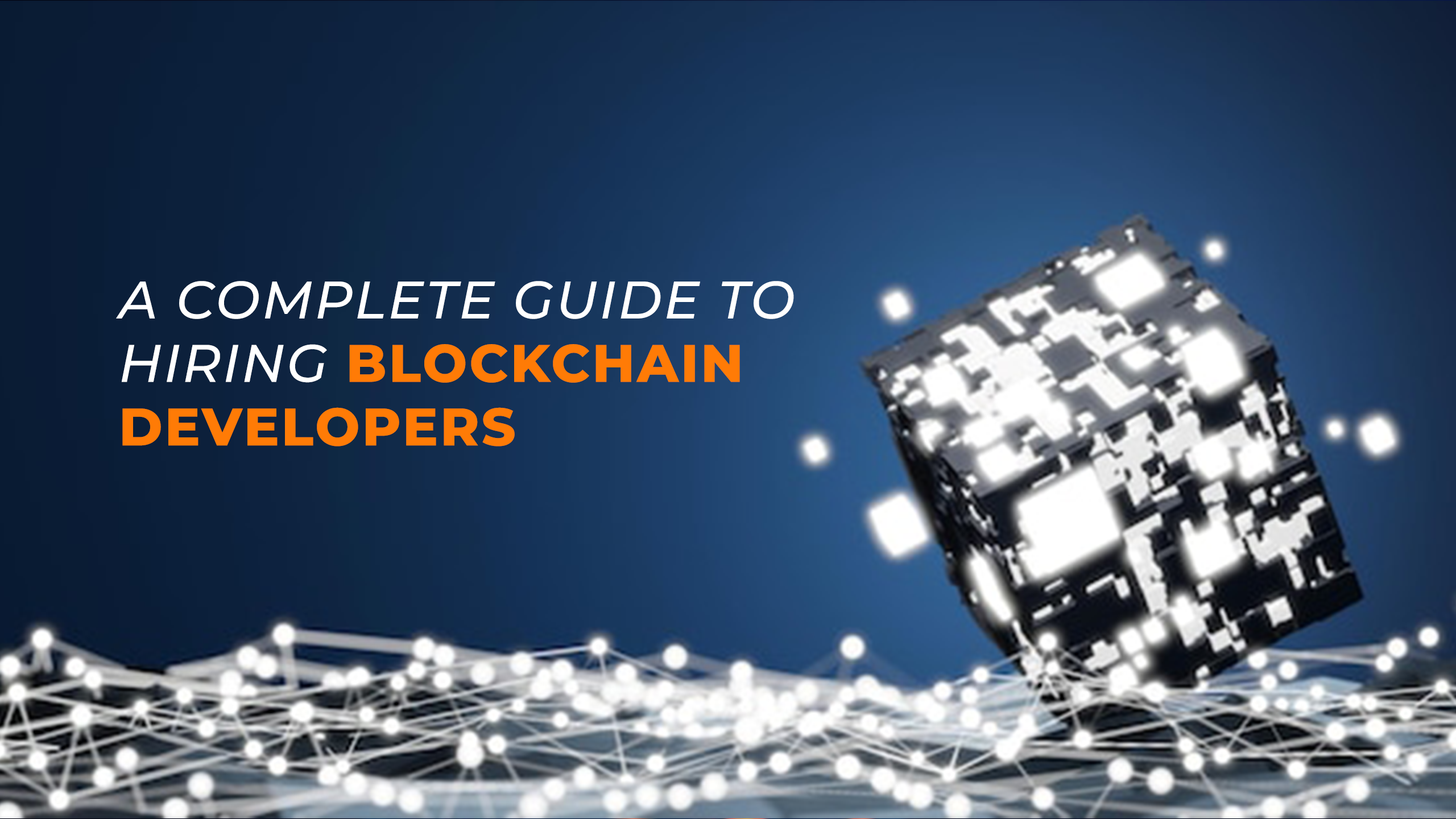I heard you want to hire a blockchain developer. Is it so? But doesn’t know where and how to start? If there is any other programming language, you will find plenty of developers in the market. But blockchain? Ugh, there are hardly any good programmers. Why is it so? One thing – it is hard to learn and for another, it’s a new technology.
Blockchain is convoluted in nature and this is what makes blockchain a valuable skill to possess. So, hiring the right candidate for your blockchain project can be a daunting chore.
To ease it up for you, I am here with another insightful blog on how to hire a blockchain developer.
Why is Blockchain Technology Escalating?
Since 1991, blockchain technology has been developing. However, the first blockchain-based cryptocurrency, Bitcoin, arrived in 2009, bringing it to the fore. Open-source software Bitcoin was founded anonymously, so it retains some mystery. A large number of people, however, are attracted to Bitcoin and blockchain due to their decentralized nature. A wallet containing cryptocurrencies, mostly bitcoins, was used by several million people in 2017.
Blockchain developers are in high demand. An unusual dilemma arises from this situation: too many people want blockchain developers, but there aren’t enough available. The number of developers dedicated to writing cryptocurrency software worldwide was only 5,000 in 2016. The once-unique technology is now loved by many programmers. This has changed, however, due to an undeniable increase in demand. There has been an increase in people learning to program blockchain technologies due to their potential and promise.
Among LinkedIn’s most in-demand skills for 2020, blockchain was included in the list in early 2020. As a whole, blockchain was the only technology to make the top of the list for the first time.
How To Find The Most Suitable Blockchain Developer?
There are a variety of ways to find a blockchain developer:
Hiring websites
When we browsed the websites to find dedicated programmers, we could shortlist the below sites.
Toptal
Stack Overflow Talent
People Per Hour
GitHub Jobs
Hired
Space-O Technologies
Freelancer.com
Upwork
Clutch
GoodFirms
Skills Required for a Blockchain Developer
It is imperative that all programmers understand blockchains, decentralized systems, ledgers, the Ethereum network, and various programming languages, as well as cryptography and cryptocurrencies.
The skills and tools listed below are essential for an excellent programmer.
Basic Programming Concepts
Make sure that the candidate is well-versed in the concepts of JavaScript, C, Node.JS, Python, C++, Solidity, and Go.
If you are choosing someone, choose the one who:
- Have experience in working with OOPS. When the program needs to be updated, this structure allows for that to be done.
- Has a good understanding of the language syntax. Language knowledge and experience are important, even if you only know a few words in a particular language.
- Multithreading is possible in a variety of application types.
Data Structure
Each app relies on its data structure. You should hire someone who understands, has worked with, and can program linked lists and hash tables.
Encryption & Security
As a result of each loss of data, competitors are able to access this information. Encryption and security are therefore key requirements for programmers. Consider the following:
- The expertise of SHA (Secure Hash Algorithm). As a result of SHA’s creation, cyberattacks are highly protected. Assess the applicant’s understanding of SHA-1 and SHA-2 so that he or she is able to choose the appropriate feature.
- Familiarity with private and public fundamental ideas and encryption and decryption techniques.
Specific Skills & Concepts of Blockchain
Experts in blockchain need to have a thorough understanding of specific blockchain concepts, as well as experience using them.
During the interview, pay attention to the candidate’s answers to determine whether you should pay attention to him or her. Here’s a quick list of programming terms:
DLT (Distributed Ledger Technology): Rather than storing data in a single location, it is distributed across multiple nodes. Programmers must be able to explain how DLT is used in various blockchain types.
Immutability: A blockchain’s immutability implies that the data cannot be changed. There is no way to alter the data after it has been created.
Consensus: Blockchains are updated by consensus. The concept of consensus enables information to be documented because no single body can decide on this issue.
Smart contracts: Programmers must understand that these are business logics that allow transferring anything of any value without the need for mediators.
Dapps: Instead of running on a single computer network, Dapps operate on a peer-to-peer network.
Sharding: Data sharding improves the performance of databases by storing data in multiple partitions.
Public blockchains and permissioned blockchains: There are two basic blockchain concepts: public blockchains and permissioned blockchains. Legal blockchains allow access to data, but require specific keys to verify and extract info. Public blockchains allow exchanging information, whereas legal blockchains allow reading data.
Bottom Line
It’s time to hire a competent programmer to integrate blockchain services into your applications now that you’ve learned all these things about blockchain.
We have it if you’re looking for it! You will receive the full value of your investment if you hire a blockchain developer from the Web 3.0 India team.





